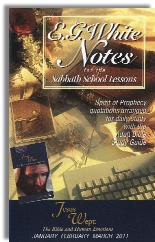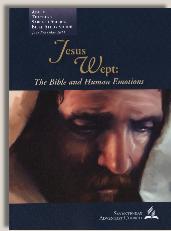|
||||||||||||||
Commentary on "Hope Against Depression"
Day 5: Wednesday, February 9, 2011 - The Need for Forgiveness
Overview
Most of Wednesday's lesson dealt with guilt over both unconfessed sin and confessed sin. The author starts by stating guilt over unconfessed sin can be painful, and even haunting. He adds that there are many who still lament over the guilt of confessed sins, not feeling completely worthy of forgiveness. He continues by saying that in cases where one has a hard time letting go of sins, even if they have been confessed, the person must hold onto the promises of healing and acceptance that God gives through forgiveness.
He also adds as a side note, that we must be very careful not to judge people who are suffering from depression, or struggling with mental and emotional turmoil, as having an unconfessed sin.
Problems
Once again, while the author stated some truth, he brushed over it with such shallowness that one is left wondering what he really means when he says we must let go and overcome feelings of guilt.
He states in the lesson, "In such cases, it’s important to focus on God’s promises of healing and of acceptance, even for the worst of sins. We can’t undo the past; what we can do, by God’s grace, is seek to learn from our past mistakes and, to whatever degree possible, make restitution for whatever wrong we have done. After all, all we can do is surrender to God and seek His mercy, grace, and healing."
When I read this statement, I see no explanation for what forgiveness is, other than "healing and acceptance". And I see no description about repentance except, "seek to learn from our past mistakes...and make restitution for whatever wrong we have done". Is this really what forgiveness and repentance is about?
Repentance and forgiveness are interwoven, and cannot be separated from each other. If Biblical repentance has not taken place, then what may be labeled as "guilt" may actually be conviction from the Holy Spirit. True repentance comes only when we are willing to let go of the sin both physically through obedience, and emotionally in our hearts so that we no longer "cherish" the sin. Unless this full surrender occurs, God cannot work a complete change in our hearts. And unless a complete heart change is done, we are always at risk for returning to sinful actions.
Once true repentance takes place, any accusation or guilt we still feel is from the enemy. In the life of the believer, "guilt" experienced before repentance is the conviction of the Holy Spirit. "Guilt" experienced after repentance is the condemnation of the devil. Therefore, if you have repented of sin, you are forgiven regardless of how you feel. In Luke 5:24, Jesus announced that He had the power and the authority to forgive sins. In fact, it is for forgiveness that Jesus came. 1 John 1:9 says, "He is faithful and just to forgive us our sins, and to cleanse us from all unrighteousness."
When we come to God in true repentance, He forgives our sins and we can in confidence and faith, let go of the guilt and accusations of the enemy.
Summary
- Repentance and forgiveness cannot be separated.
- Prior to repentance, "guilt" may be the conviction of the Holy Spirit.
- After repentance, "guilt" is an accusation from the devil.
- God is faithful to forgive our sins when we come to Him in repentance.
- When our sins our forgiven, we no longer need to be slaves to guilt.
Copyright 2011 BibleStudiesForAdventists.com. All rights reserved. Revised January 18, 2011. This website is published by Life Assurance Ministries, Glendale, Arizona, USA, the publisher of Proclamation! Magazine. Contact email: BibleStudiesForAdventists@gmail.com.
The Sabbath School Bible Study Guide and the corresponding E.G. White Notes are published by Pacific Press Publishing Association, which is owned and operated by the Seventh-day Adventist church. The current quarter's editions are pictured above.
Official Adventist Resources
Standard Edition Study Guide Week 7
Teacher's Edition Study Guide Week 7


